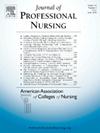Implementing SQUIRE guidelines to improve standardization and rigor of DNP projects
IF 2.8
3区 医学
Q1 NURSING
引用次数: 0
Abstract
School of Nursing administrators and educators across the United States are seeking guidelines for structuring and administering their Doctor of Nursing Practice (DNP) degree programs. There is a lack of consistent guidelines for increasing rigor and standardization across DNP Projects, the terminal product of most DNP Programs. Employers expect nurses holding a DNP degree to conduct quality improvement projects that positively impact patient health or the organization. As schools transition to a competency-based education model based on 2021 AACN Essentials, DNP Programs will benefit from well-defined models for guiding DNP Projects. At Oregon Health & Science University (OHSU) School of Nursing, the faculty undertook a curricular modification to phase out the master's programs for Advanced Practice Registered Nurses (APRN) and provide a DNP-only degree program. This curricular innovation focused on using the Standards for Quality Improvement Reporting Excellence 2.0 (SQUIRE 2.0) used as the framework to guide course content, culminating in the DNP Projects courses. The use of SQUIRE as a guiding model for design, implementation, evaluation, and dissemination has proven to be effective at increasing precision and standardization across the six APRN specialties at OHSU. This article describes the process and outcomes of scaffolding SQUIRE across a DNP Program to enhance DNP Project outcomes.
执行SQUIRE指导方针,提高DNP项目的标准化和严谨性
美国护理学院的管理人员和教育工作者正在寻求构建和管理护理实践博士(DNP)学位课程的指南。在DNP项目(大多数DNP项目的最终产品)中,缺乏一致的指导方针来提高严谨性和标准化。雇主希望拥有DNP学位的护士能够开展质量改进项目,对患者健康或组织产生积极影响。随着学校向基于2021 AACN要点的能力为基础的教育模式过渡,DNP项目将受益于指导DNP项目的定义良好的模型。在俄勒冈健康&;科学大学(OHSU)护理学院的教师进行了课程修改,以逐步取消高级执业注册护士(APRN)的硕士课程,并提供仅限dnp的学位课程。这一课程创新侧重于使用卓越质量改进报告标准2.0 (SQUIRE 2.0)作为指导课程内容的框架,最终形成DNP项目课程。使用SQUIRE作为设计、实施、评估和传播的指导模型已被证明有效地提高了OHSU六个APRN专业的准确性和标准化。本文描述了跨DNP项目的脚手架式SQUIRE的过程和结果,以提高DNP项目的成果。
本文章由计算机程序翻译,如有差异,请以英文原文为准。
求助全文
约1分钟内获得全文
求助全文
来源期刊
CiteScore
4.80
自引率
8.00%
发文量
153
审稿时长
52 days
期刊介绍:
The Journal will accept articles that focus on baccalaureate and higher degree nursing education, educational research, policy related to education, and education and practice partnerships. Reports of original work, research, reviews, insightful descriptions, and policy papers focusing on baccalaureate and graduate nursing education will be published.

 求助内容:
求助内容: 应助结果提醒方式:
应助结果提醒方式:


